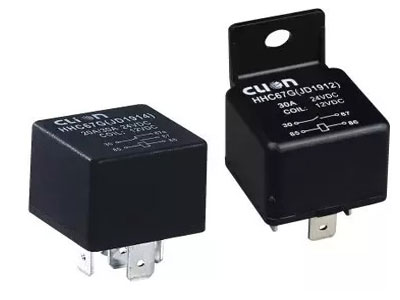What Is The Purpose Of Relay?
Key Takeaway
The purpose of a relay is to allow circuits to be switched by electrical equipment. For example, a relay can enable a timer circuit to switch power on or off at a preset time. This makes relays useful for controlling high-power devices with a low-power signal. Relays are widely used in various applications, including automation systems, home appliances, and automotive electronics, to manage and control electrical circuits efficiently.
Introduction to Relays and Their Basic Functions
Relays are electrically operated switches that use an electromagnet to operate a mechanical switching mechanism. Their primary function is to control a high-power circuit with a low-power signal. This capability makes them invaluable in various applications, including industrial machinery, automotive systems, and home automation.
In an industrial setting, relays manage the operation of heavy machinery, ensuring that high-power equipment can be turned on or off with minimal manual effort. For example, a small control signal can activate a relay, which then switches on a large motor. This not only simplifies control but also enhances safety by isolating the user from high-power circuits.
Understanding how relays work and their basic functions is essential for anyone involved in electrical engineering or electronics. They provide a reliable and efficient means of controlling high-power circuits with low-power signals, making them a fundamental component in modern electrical systems.

How Relays Enhance Electrical Safety
Relays play a crucial role in enhancing electrical safety by providing isolation between control and load circuits. This isolation ensures that high voltage or high current circuits are controlled safely by low voltage signals, protecting sensitive components and preventing electrical hazards. Relays can also respond to abnormal conditions, such as overcurrent or short circuits, by disconnecting the circuit to prevent damage and ensure user safety.
You May Like to Read
Relays as Protective Devices for Circuit Safety
Relays act as protective devices, safeguarding circuits from faults and overloads. They can detect abnormal conditions and automatically disconnect the affected circuit, preventing damage to equipment and reducing the risk of fire or other hazards. For instance, in industrial settings, relays protect machinery by stopping operations if they detect overheating or excessive current flow. This protective function is vital for maintaining the integrity and longevity of electrical systems. For more information on advanced relay solutions, explore our offerings.
The Importance of Relays in Managing High Power Loads
Relays are essential for managing high power loads in various applications. They enable the control of high power devices with low power signals, allowing for efficient and safe operation of heavy machinery, lighting systems, and other high power equipment. By using relays, systems can handle large currents and voltages without directly exposing control circuits to these high power conditions, which could otherwise cause damage or pose safety risks.
The Impact of Relays on Energy Efficiency
Relays contribute to energy efficiency by enabling precise control of electrical systems. They allow for the automation of switching operations, ensuring that electrical devices are only powered when needed. For example, relays in smart home systems can turn off lights, heating, or cooling systems when rooms are unoccupied, reducing energy consumption. In industrial applications, relays help optimize the operation of machinery, leading to energy savings and improved efficiency.
Conclusion
Relays are fundamental components that play a critical role in ensuring the safety, efficiency, and reliability of electrical systems across various industries. They provide essential functions, including isolating control circuits from high power loads, protecting against faults, and enabling precise control of electrical devices. By understanding the purpose and benefits of relays, engineers and technicians can effectively design and maintain systems that are safe, efficient, and reliable. Relays are indispensable in modern technology, underscoring their critical importance in our everyday lives and industrial operations.
